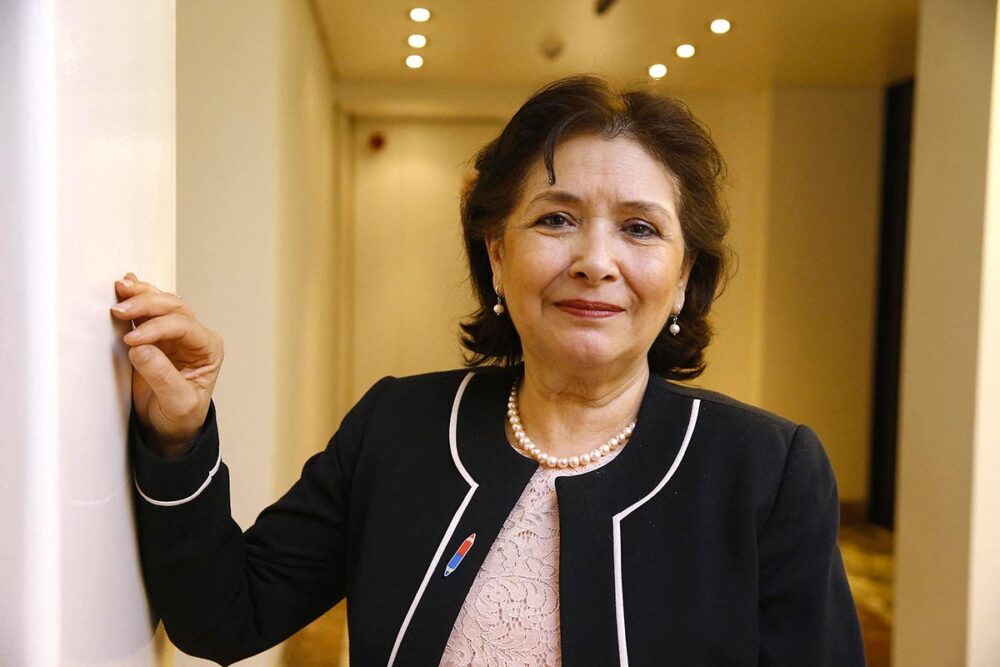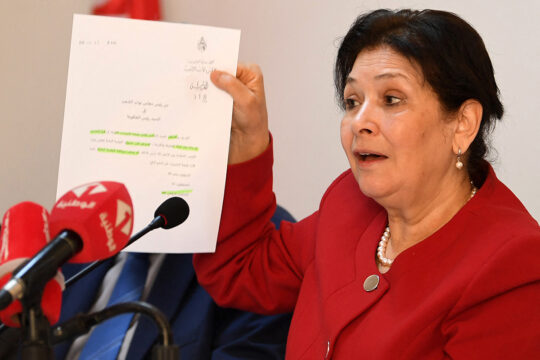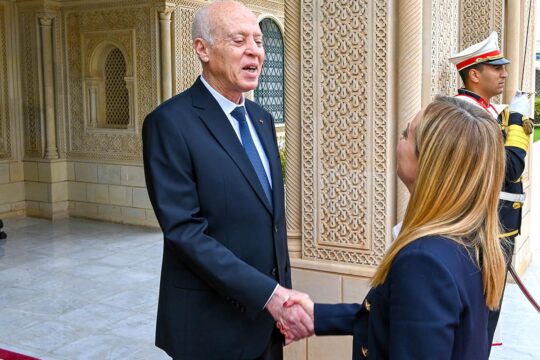Ayachi Hammami, former minister for human rights, is one of the fourteen lawyers on Sihem Bensedrine’s defence committee. Their commitment to rights and freedoms during the regime of president Ben Ali (1987-2011) had already brought together the former journalist - who became the president of the Truth and Dignity Commission (IVD) between 2014 and 2018 - and the man of law from the Tunisian political Left. But what seems to have reunited them was Hammami’s publication of the IVD’s final report on 24 June 2020, while he was part of Elyes Fakfakh’s short-lived government, which lasted only six months.
“Sihem Bensedrine’s imprisonment [on 1 August 2024] is one of a series of violations committed as a result of the authoritarian drift of the current power. Her imprisonment is part of the wave of abusive arrests that has affected journalists, influential figures, politicians, human rights defenders, civil society activists and young, ordinary and anonymous users of social networks in recent months,” says the lawyer. The former minister points out that he himself has been banned from leaving the country and is not allowed to appear in public.
On 10 October 2023, he appeared before the anti-terrorist judicial unit in the so-called case of “conspiracy against state security”, which involves some fifty defendants, mainly politicians, six of whom have been locked up since February 2023. Earlier, on 10 January 2023, Hammami had appeared before an investigative magistrate following a defamation suit by the minister of Justice for criticising her work. But neither the sword of Damocles of going to jail nor the ban on public appearance - “an impossible measure to apply! Since leaving my home would be tantamount to overriding the judge’s decision” - prevents him from continuing to fight for the freedom of the former chair of the Truth Commission.
A judicial soap opera starting in 2019
Bensedrine has been detained for nearly six months on a single charge, which is not new: she is accused of having “falsified” the IVD’s final report in exchange for money. The case, which Justice Info reported on at length in this article, dates back to 26 March 2019, when the voluminous document of nearly 2,000 pages was published on the Commission’s official website.
That’s when Ibtihel Abdellatif, former chair of the Women’s Commission at the IVD, claimed in the media that the version of the document that the IVD considered as authentic was different from the one sent to the Tunisian president Béji Caied Essebsi (2014-2019) on 31 December 2018. In March 2021, Bensedrine was heard as a witness by the financial crimes central unit of the National Guard. But the accusations and attacks from several politicians and journalists intensified. Seized by the national anti-corruption body, the prosecutor’s office opened a judicial investigation against Bensedrine. The case was not pursued until two years later: on 7 March 2023, Bensedrine posted a message on her Facebook page informing the public that five days earlier, she had been summoned by the judicial unit on economic and financial matters. She added that she had been served with a ban on leaving the country and that the judge had charged her with gaining “unfair advantage for herself and a third party”, “causing damage to the State” and “falsifying” the final report.
The case concerned in this controversial part of the report has been investigated and transferred by the IVD to the courts. Twenty-three senior government officials and businessmen are being prosecuted for influence peddling, embezzlement, abuse of position and breach of trust in the management of public funds. “To this day, these senior officials and businessmen suspected of misappropriating public funds, some of whom are still in office, remain unpunished,” say the four lawyers present at the press conference organised in Tunis on 4 December by Bensedrine’s defence committee.
In addition, “the 2018 draft was unfinished, and commission members were expected to edit the draft in January 2019, as confirmed in commission minutes reviewed by Human Rights Watch,” said the NGO in a statement calling for Bensedrine’s release on 30 September 2024.
What risk does Bensedrine represent?
“There is no legal justification for issuing a detention warrant against Sihem Bensedrine: she poses no danger to the State or to herself, nor can she intervene in the course of the case since the IVD’s final report, which is the subject of the dispute between her and the courts, has already been published in the Official Journal,” says Hammami.
In a press release dated 4 December 2024 and called “The authorities persist in sequestering transitional justice”, Bensedrine’s defence committee asked for the immediate release of the former president of the IVD and the cancellation of the legal proceedings which target her, “in violation of the legal guarantees ensuring the immunity of the members of the IVD and its agents in the exercise of their mission”.
Committee member Abderraouf Ayadi, a former member of the National Constituent Assembly (2011-2014) and former political prisoner under Ben Ali, explains: “I asked the judge in charge of the case to which category of risk he was referring to in placing Bensedrine in pre-trial detention. He refused to answer. Around the world, justice is guaranteed by two pillars: the presumption of innocence and an independent judiciary. These two principles are lacking here. The political nature of this affair is obvious. In reality, the former President of the Commission is being prosecuted for having carried out her mission till the end within the framework of transitional justice and revealed the truth about the mechanisms of repression.”
During the press conference, Bensedrine’s defence committee pointed out that the judge who had conducted the investigations had decided to keep her free. However, this judge was transferred in April 2024 to the court of Jendouba (northwestern Tunisia), a move that took place outside the annual transfers of magistrates. “We have learned that he is currently sanctioned by being banned from sitting on the bench,” notes Fethi Rebii. For example, the detention warrant issued against her on 1 August 2024, “with unusual speed, in the absence of any new evidence to justify it,” was issued by a judge who was an acting investigating magistrate, according to the committee.
Two requests for release denied
On 8 August 2024, three United Nations experts issued a statement saying that Bensedrine’s arrest “could amount to judicial harassment of Ms Bensedrine for the work she has undertaken as president” of the IVD and that it “appears to be aimed at discrediting information contained in the Commission’s report which could give rise to legal proceedings against alleged perpetrators of corruption under the previous regimes”.
The case is still under investigation and, in Tunisia, pre-trial detention can last up to fourteen months. To date, his lawyers have been refused two requests for her release. While in prison, Bensedrine, now aged 74, underwent a thorough tax audit, which did not reveal any “suspicious” transactions or movements in her bank account, according to her lawyers.
Bensedrine’s detention coincides with the complete suspension of the specialised chambers charged to try criminal cases that came out of the IVD investigations. Remaining incomplete since the new judicial season in September 2024, the chambers are forbidden to sit. “We are convinced that one day, perhaps in the long term, the transitional justice process will resume and the government will implement the recommendations of the Truth Commission’s report. We hope that day will come while we are still alive,” says Hammami with a smile.







